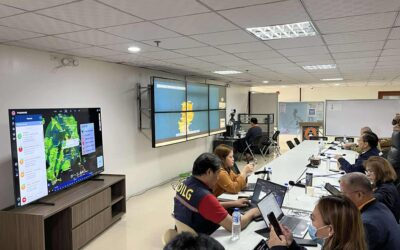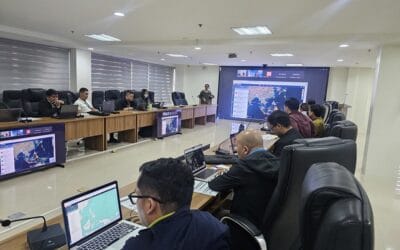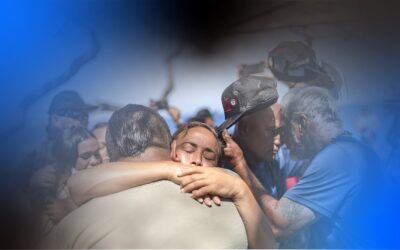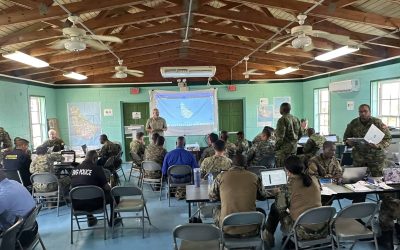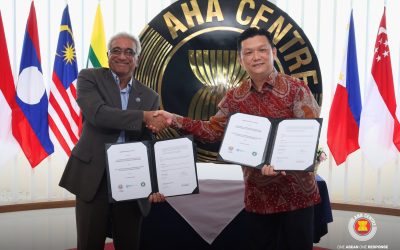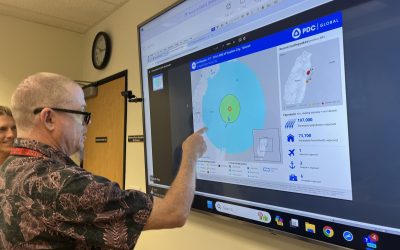In a time of unprecedented humanitarian need, the International Federation of Red Cross and Red Crescent Societies (IFRC) and the Pacific Disaster Center (PDC), an applied science and research center under the University of Hawai‘i, have announced a partnership to anticipate disaster impacts. The two organizations are melding their common mission and individual resources to tackle some of the world’s most significant humanitarian challenges using next-generation anticipatory science and technology.
“When we learned that IFRC, the largest humanitarian organization in the world, was launching Anticipation Hub, an online knowledge exchange platform to shift the mindset of responders from reacting to anticipating disasters, we knew we had something significant to contribute,” said PDC Executive Director Ray Shirkhodai.
Xavier Castellanos, IFRC Under Secretary General of National Society Development and Operations Coordination, said data-driven decision-making and evidence-based early action are at the core of the work of the IFRC and its global network of Red Cross and Red Crescent National Societies.
“By working together with the Pacific Disaster Center, the IFRC will enhance the use and exchange of information, science and technology; and develop tools and mechanisms that will allow volunteers, staff and partners to make better decisions to protect people at risk of disasters,” said Castellanos.
“This alliance is a step forward in the achievement of the digital transformation goals the IFRC has set. Integrating digital and emerging technologies, skills and a digital culture into our organization in a more efficient way will enable us to harness collective intelligence and democratize access to information. It will allow us to test a wide range of emerging technologies that can drive greater efficiency and impact in our work.”
UH President David Lassner said, “By partnering with expert organizations like the IFRC to create meaningful data exchanges and leverage years of ground-level operational expertise in mitigating humanitarian crises, the Pacific Disaster Center has developed a world-class set of tools, technologies, and impact modeling capabilities to aid disaster mitigation and effective adaptation to the significant challenges presented by extreme hazards, now and into the future.”
Tropical Cyclone Idai
The PDC’s mission is personal for Director of Global Operations Erin Hughey. Her passion for humanitarian work can be traced back to her childhood when she worked alongside her family at the American Red Cross. Since then, Hughey has dedicated her life’s work to advancing the field of disaster management and widely influencing evidence-based decision-making in disaster risk reduction.
According to Hughey, the opportunity for the PDC and the IFRC to partner began to take shape in 2019 as Category 4 Tropical Cyclone Idai struck Mozambique. Although Mozambique is routinely affected by tropical cyclones, there has been a sharp rise in the severity of impacts to this region—a trend observed around the world.
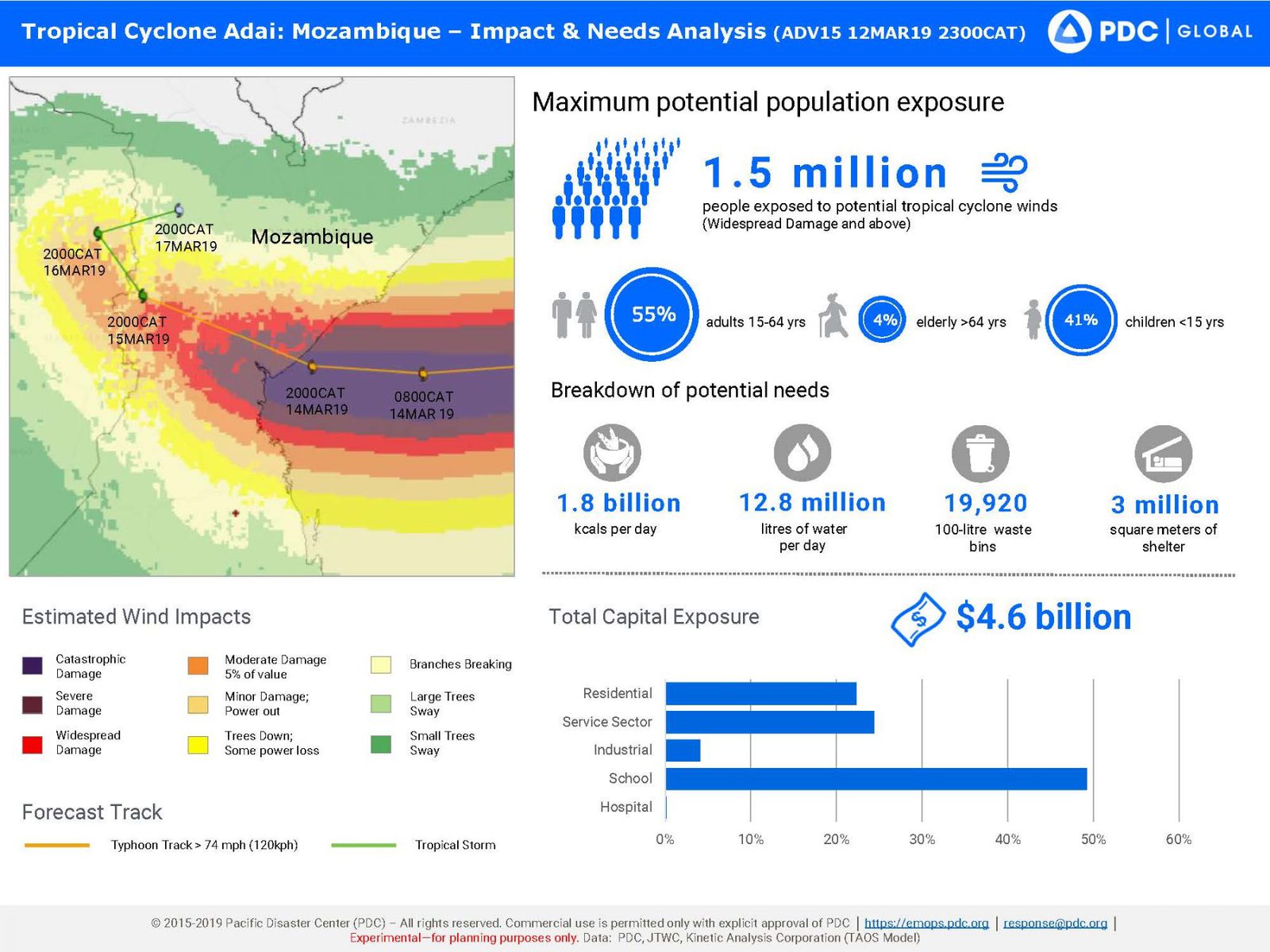
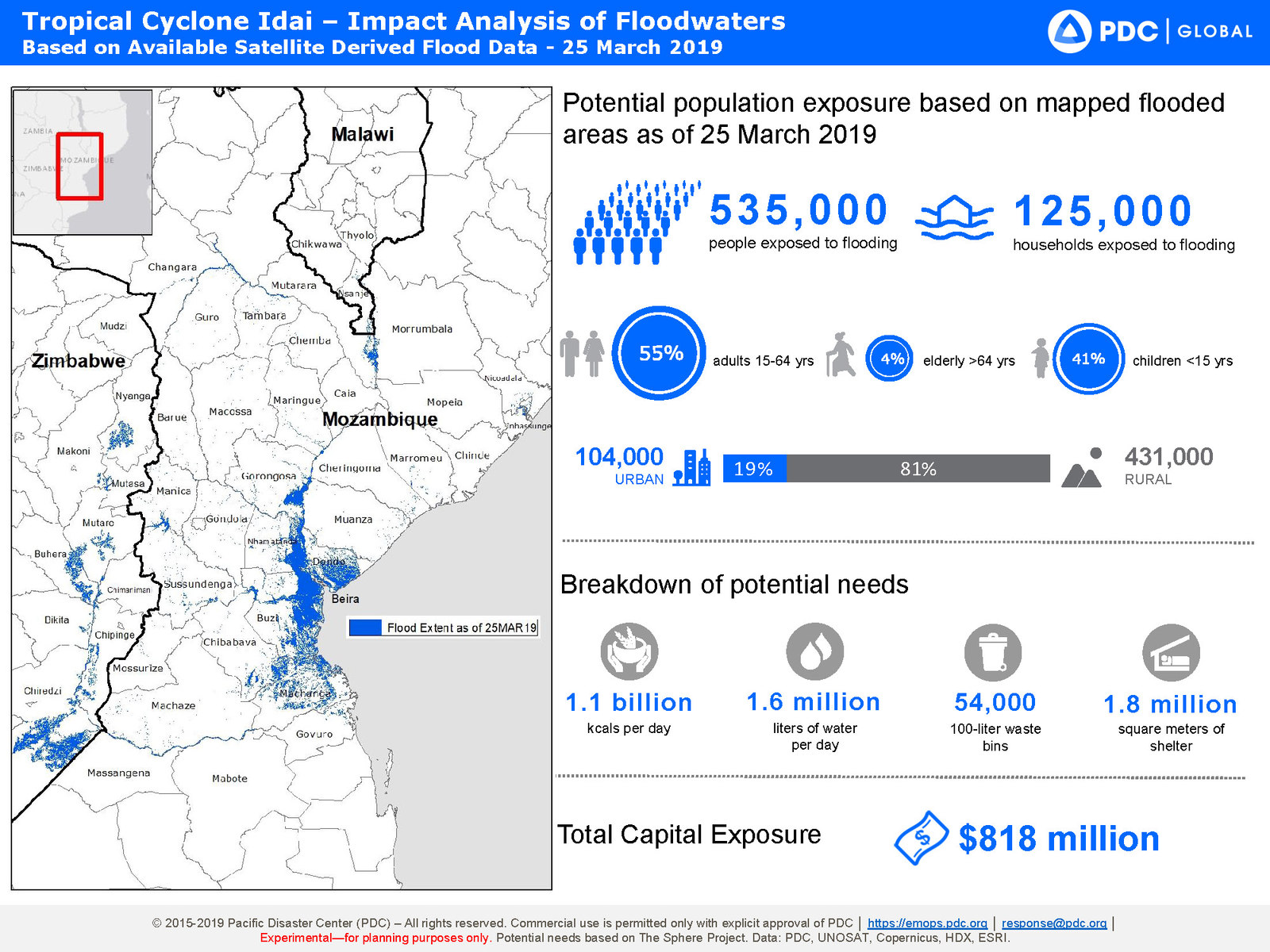
Products pictured above were developed by PDC to support humanitarian response to Tropical Cyclone Idai which made landfall as a Category 4 in Mozambique in 2019. Idai was one of the worst tropical cyclones on record to affect Africa and the Southern Hemisphere, affecting more than 3 million people and resulting in thousands of fatalities.
“Mashing up the PDC’s capabilities with the IFRC’s critical insights from more than 100 years of life-saving work allows our organizations to join forces to protect lives, reduce losses and better anticipate the new and emerging threats brought about by natural disasters and conflict crises which are often intertwined,” Hughey said.
ABOUT PDC
Pacific Disaster Center (PDC) is a leading scientific innovator of global risk reduction science and technology. As a University of Hawai’i applied science and research center, our work intersects with a variety of government, community, academic, and scientific organizations at home and around the world to build resilience to natural and man-made hazards—enhancing the capacity to quickly and accurately anticipate and prepare for new and emerging threats. Our innovations in multi-hazard early warning systems, predictive analytics, data science, and machine learning provide decision-makers with the powerful tools and insights they need to navigate today’s complex and interconnected risk landscape.


